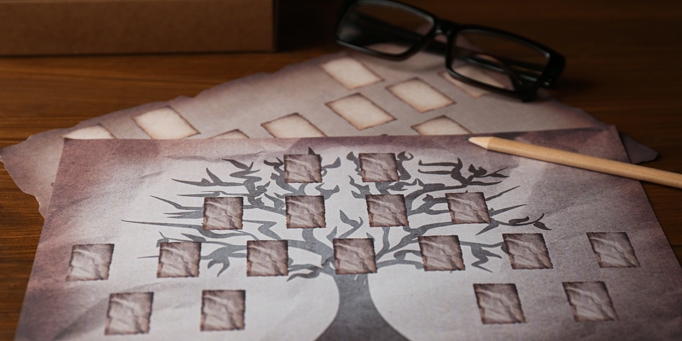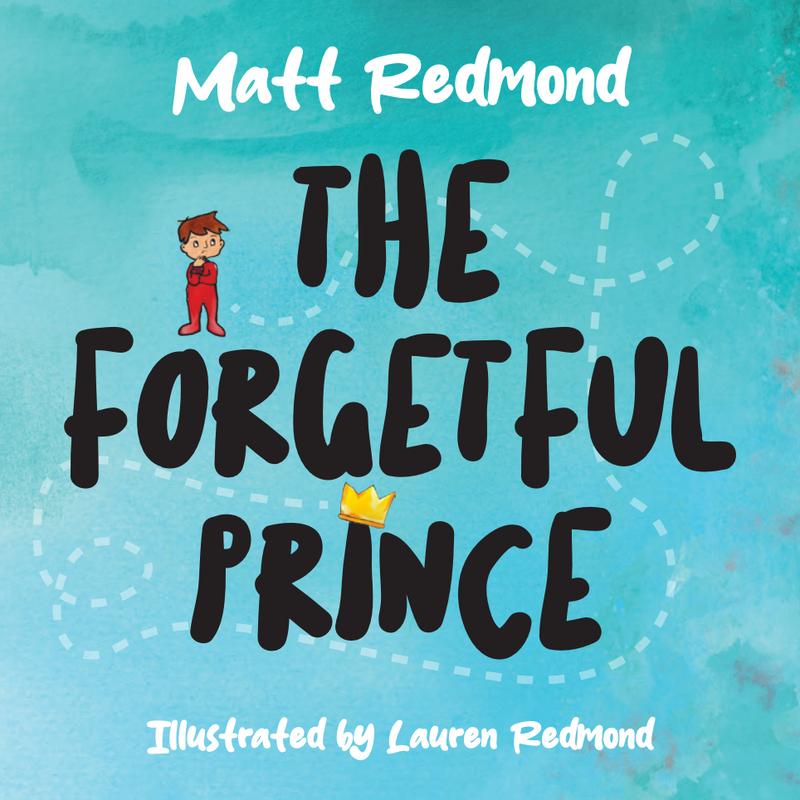
Family secrets, faith and our true inheritance
Christians are not trapped by their family history.
I've always been fascinated by the way our past shapes us. Our families pass down more than just genetics—they give us names, traditions and sometimes, secrets. Shows like Every Family Has a Secret tap into this deep curiosity about who we are and where we come from. But as I've come to realise, while our biological inheritance can reveal much about us, our true inheritance—the one given by God—speaks even louder.
The weight of inheritance
For many people, learning about their ancestry is a journey of discovery. Some uncover inspiring legacies, while others face painful truths—family estrangements, unknown relatives, or even long-buried skeletons in the family cupboard. Our earthly inheritance can feel like a mixed blessing, carrying both the richness of history and the weight of unresolved stories.
I know this tension personally. Being adopted meant I had two layers of inheritance—one biological and one through family love. But beyond both, I have another inheritance that is even more defining: my spiritual adoption into God's family. And now that I’m a dad myself, that’s the identity I want my kids to treasure more than any other.
Growing up, I sometimes wondered what my life might have been like if I had stayed with my birth family. Would I have inherited their traditions, their struggles, their dreams? It's a strange thing to think about—the path not taken. But one thing I have never had to question is the security of my place in God's family. Unlike earthly inheritances, which can be complicated and uncertain, the inheritance God gives us is promised, eternal and unchanging.
The power of discovery
In Every Family Has a Secret, people often describe the emotional impact of uncovering the truth. Some feel relief, others struggle to reconcile their past with their present. It reminds me of the way we all wrestle with identity—not just in relation to our families, but in relation to God. The world might tell us our inheritance is purely biological, defined by genetics and circumstances. But Scripture tells us a different story.
The Bible is filled with people who wrestled with their identity in light of their family history. Think of Joseph, sold by his own brothers into slavery. His biological inheritance included betrayal and hardship, yet God's inheritance for him was one of restoration and purpose. Joseph was able to say to his brothers in Genesis 50:20, ‘You intended to harm me, but God intended it for good to accomplish what is now being done, the saving of many lives’. Joseph's story reminds us that while our earthly past may shape our circumstances, our spiritual inheritance gives us a future.
Paul expands on this in Romans 8:15, writing, ‘The Spirit you received does not make you slaves, so that you live in fear again; rather, the Spirit you received brought about your adoption to sonship’. Our earthly families may shape our story, but they don't define our ultimate identity. As children of God, we receive an inheritance that is not fragile or broken—it is eternal, whole, and secure.
Redeeming the past, embracing the future
One of the most powerful things about faith is that it reinterprets our past. We are not ultimately bound by the failures or mistakes of those who came before us. What's more, our own inevitable missteps do not ultimately disqualify us from hope and healing. As parents, our mistakes and limitations certainly impact our children, but they don’t have the final word. Through Christ, both we and our children receive a new heritage—one of grace, belonging and restoration.
When we think about earthly inheritance, we often focus on material things—money, property or heirlooms passed down through generations. But some inheritances are less tangible: a strong work ethic, a tendency toward anxiety, a love for music, or even a family history of faith. Sometimes, though, what we inherit is brokenness—patterns of sin, addiction or pain that have been passed down like unwanted heirlooms.
But the beauty of God's inheritance is that it breaks the cycle. When we are adopted into his family, we are given a new identity. 2 Corinthians 5:17 reminds us, ‘Therefore, if anyone is in Christ, the new creation has come: the old has gone, the new is here!’ In Christ, we are not defined by generational wounds or mistakes. Instead, we are part of a family legacy of faith that stretches back through the ages and forward into eternity.
Wrestling with family secrets
For some, uncovering family secrets can be unsettling. A person may discover that their ancestry is different from what they were told, that an ancestor lived a double life, or that a family story passed down for generations wasn't true. These revelations can cause people to question their place in their family or even their sense of self.
But the good news is that no matter what we learn about our biological past, our spiritual inheritance remains unchanged. In Christ, we are not defined by the secrets or sins of those who came before us. Instead, we are defined by the unchanging truth that we are God's beloved children.
In my own life, I have found comfort in knowing that my identity is not based on genetics, achievements, significant failures, or even my family history. My worth is rooted in Christ. And that means that whether my past is filled with joy or pain, I am still part of a greater family, a greater story, a greater plan—and an even greater inheritance.
The eternal inheritance
The Bible speaks often about inheritance, but it isn't talking about money or property. Instead, it points to something far greater—the eternal inheritance that belongs to those who belong to Christ. The Apostle Peter describes it this way:
Praise be to the God and Father of our Lord Jesus Christ! In his great mercy he has given us new birth into a living hope through the resurrection of Jesus Christ from the dead, and into an inheritance that can never perish, spoil or fade. (1 Peter 1:3–4)
Unlike earthly inheritances, which can be lost, contested or squandered, God's inheritance is secure. It is not based on human progeny but on divine promise. When we place our trust in Christ, we receive an identity that is immovable. As parents, we can worry about what kind of material inheritance we are leaving our children. But how much more valuable would it be to teach them about God’s promised inheritance of eternal life.
Your past does not define you
If you've ever felt trapped by your family's history—by wounds, regrets or even unanswered questions—remember that you have been inherited twice. Yes, you carry the DNA of generations before you, but if you have put your trust in Jesus, even more than that, you carry the name of Christ and are marked with his powerful Spirit.
Your past may shape you, but it does not define you. In God's family, you are fully loved, fully known, and fully his. You are also fully equipped—by God’s word and God’s Spirit—to break with the past and live out your new family identity in Christ. And in the end, that is the only identity, the only inheritance that truly lasts.
---
Matt Redmond is the author of The Forgetful Prince and his wife, Lauren, is the illustrator. Together, they are navigating the beautiful, messy journey of raising kids. With a heart for storytelling and a passion for faith, they hope to inspire other families to cultivate deep, meaningful relationships in creative ways. Connect with them and read more about The Forgetful Prince through their wesbite.

The Forgetful Prince
This beautifully illustrated book helps children aged 3 to 7 to know and remember the truth we read in the Bible: that God is good, his children are precious to him, and they have a very special place in his kingdom.
For more articles from Growing Faith, subscribe to our monthly e-newsletter.
To hear about the latest books and resources from Youthworks Media, subscribe here.








